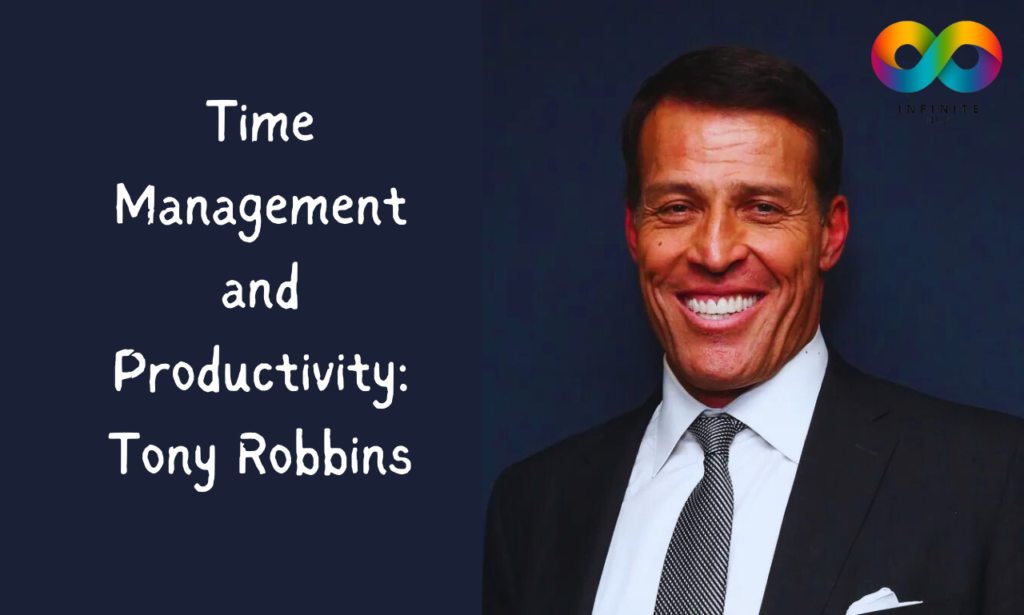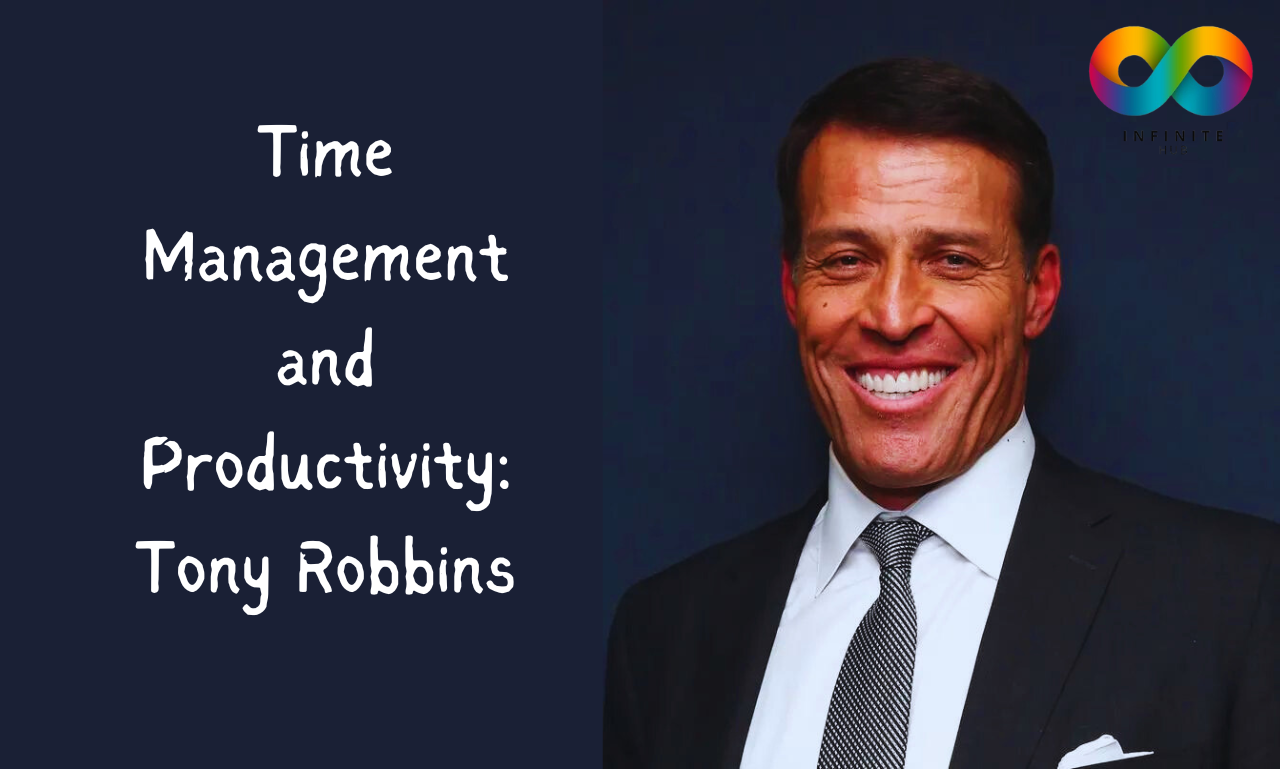
In today’s fast-paced world, effective time management and productivity are crucial for achieving success in both personal and professional spheres. Tony Robbins, a renowned life coach, author, and motivational speaker, offers invaluable insights into mastering these essential skills. His teachings emphasize not just working harder, but working smarter, aligning actions with goals, and maintaining a balance that promotes well-being.
Understanding the Importance of Time Management
Time is a finite resource, and managing it efficiently is key to maximizing productivity. Robbins stresses that time management is not just about scheduling tasks but about prioritizing and focusing on what truly matters. By distinguishing between urgent and important tasks, individuals can ensure that they spend their time on activities that align with their long-term goals.
The Power of Purpose and Clarity
According to Robbins, the foundation of effective time management lies in having a clear sense of purpose. When you understand your goals and objectives, you can better allocate your time to activities that drive you toward them. Robbins suggests starting with a comprehensive review of your life’s purpose and breaking it down into achievable milestones.
The RPM Method
Robbins developed the Rapid Planning Method (RPM) to help people structure their time around their life’s outcomes and results. RPM stands for:
- Result-focused: Begin with the end in mind. Define what you want to achieve.
- Purpose-driven: Understand why you want to achieve it. This adds emotional drive and motivation.
- Massive Action Plan: Outline the specific actions needed to achieve the result.
This method shifts the focus from mere to-do lists to a more meaningful approach, ensuring that every action taken is purposeful and directed towards achieving significant outcomes.
Strategies for Enhanced Productivity
Productivity is about producing meaningful results efficiently. Robbins provides several strategies to boost productivity by leveraging time management principles.
Chunking
One of Robbins’ key techniques is “chunking,” which involves grouping similar tasks together. By doing this, you can reduce the cognitive load and time wasted switching between different activities. For instance, rather than checking emails sporadically throughout the day, set specific times to handle all your emails at once.
The 2-Minute Rule
Inspired by David Allen’s “Getting Things Done” methodology, Robbins advocates for the 2-minute rule. If a task can be completed in two minutes or less, do it immediately. This prevents small tasks from accumulating and overwhelming your schedule.
Focus and Eliminate Distractions
Robbins emphasizes the importance of focus. In a world full of distractions, maintaining focus can be challenging but is essential for productivity. Robbins suggests creating a work environment that minimizes distractions, setting clear boundaries for work time, and using tools like time-blocking to ensure dedicated periods of uninterrupted work.
Mindset and Energy Management
Robbins believes that productivity is not just about managing tasks but also about managing your energy and mindset. A positive, energized state can significantly enhance your ability to be productive.
Peak State Management
Achieving and maintaining a peak state is central to Robbins’ philosophy. This involves managing your physical, emotional, and mental energy levels. Regular exercise, proper nutrition, adequate sleep, and mindfulness practices like meditation can help maintain high energy levels and improve focus and productivity.
The Power of Rituals
Robbins advocates for establishing daily rituals that prime your body and mind for productivity. Morning rituals, in particular, can set the tone for the entire day. These might include activities like exercise, meditation, and reviewing goals. Such rituals help to create a proactive mindset and ensure that you start your day with intention and clarity.
Leveraging Technology
While technology can be a source of distraction, it can also be a powerful tool for enhancing productivity if used wisely. Robbins encourages the use of productivity apps and tools to streamline tasks and manage time effectively.
Tools and Apps
There are numerous apps designed to boost productivity, such as Trello for project management, Evernote for note-taking, and RescueTime for tracking how your time is spent on various activities. By leveraging these tools, you can organize tasks, set reminders, and track your progress, ensuring that you stay on top of your responsibilities.
Continuous Improvement and Learning
Robbins underscores the importance of continuous improvement and lifelong learning in maintaining productivity. Regularly reviewing your goals, assessing your time management strategies, and being open to new methods can help you adapt and improve over time.
Reflection and Feedback
Taking time to reflect on your day, week, or month can provide valuable insights into what’s working and what’s not. Robbins suggests maintaining a journal to track progress, note down achievements, and identify areas for improvement. Seeking feedback from mentors or peers can also provide new perspectives and ideas for enhancing productivity.
Investing in Personal Development
Investing in personal development is a key aspect of Robbins’ teachings. Whether through reading books, attending seminars, or taking online courses, continually expanding your knowledge and skills can significantly enhance your productivity. Robbins himself is a proponent of lifelong learning, constantly seeking new knowledge to refine his own strategies and techniques.
Conclusion
Mastering time management and productivity is a dynamic and ongoing process. Tony Robbins’ insights provide a comprehensive framework that goes beyond traditional time management techniques. By aligning your actions with your purpose, focusing on results, managing your energy, leveraging technology, and committing to continuous improvement, you can achieve greater productivity and lead a more fulfilling life.
Incorporating these strategies into your daily routine can transform not only how you manage your time but also how you approach your goals and aspirations. As Robbins often says, “It’s not about having more time, it’s about making more time for what matters most.” By adopting these principles, you can take control of your time, enhance your productivity, and create a life that is both successful and meaningful.



